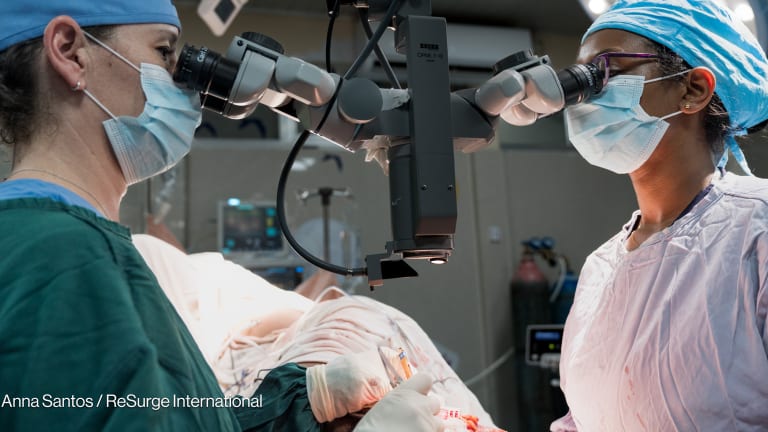Small health care providers bring health services in communities living in hard to reach areas where government-run health facilities are limited in capacity or nonexistent.
But winning over patients can be a difficult task, with myths and misconceptions often clouding people’s health-seeking behavior. A number of women in rural areas in Kenya, for example, used to believe contraceptives were dangerous or could lead to infertility.
This is where community mobilization plays a huge role, and Violet Njue, owner of a clinic part of PS Kenya’s Tunza Family Health Network franchise, makes sure her team does the outreach twice a month in communities in the town of Thika, Nairobi. During the outreach, her team educates communities on a number of health care issues, from family planning to the importance of cervical cancer screening for women.
The activity is part of the services Tunza encourages its member clinics to undertake, as a means to support the Kenyan government in its aim to reach underserved communities in Kenya. But the outreach, and the provision of free services that come with it, comes with benefits for the health care providers: It helps attract patients to their clinics, who later become regulars, paying for the clinic’s services.
Njue knows this all too well, and refers to the free services as a “marketing” strategy that helped expand her clinic that was bustling with women and children when Devex visited one Thursday morning in early October.
The stream of patients coming in to her clinic is a testament to how far her health facility has come from its humble beginnings. When she opened in 1992, she only had 2,000 Kenyan shillings ($19.70) and occupied a small space of the unit that used to be a kitchen.
Today, she has the whole space for her business and eight rooms, including a laboratory, a pharmacy and even a cryotherapy room. Her patients can also sit comfortably at the clinic’s lobby as they wait for their turn for check up or other services.
These do not mean Njue’s clinic isn’t facing challenges. She still has some loans to pay, and will need to find ways to secure enough money to avail new equipment such as ultrasound for pregnant mothers coming to her clinic. But the training provided by Tunza and the constant flow of patients help provide stability in Njue’s business. Currently, the training provided by PS Kenya under the franchise are donor-funded. But the aid organization is starting to transition some health providers under a new model, the Tunza Social Enterprise. Under the enterprise, health providers will be paying for the training and other services, but this will not be one size fits all. There will be packages for different health providers, depending on their ability to pay.
Devex recently visited a Tunza family health clinic in Kiambu county, Kenya, as part of our Making Markets Work campaign with The Abraaj Group, Philips and PSI.
Making Markets Work is an online conversation to explore what’s being done to make global health care markets accessible to people at the base of the pyramid. Over 10 weeks, we will amplify the discussion around effective health financing, analyze key challenges blocking universal market access in the health care supply chain, and explore the key strategies to make markets more effective. Join us as we look at this important issue, and share your thoughts by tagging #MakingMarketsWork and @Devex.








